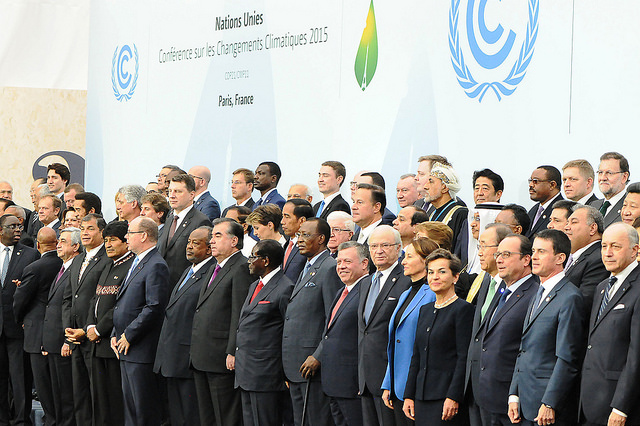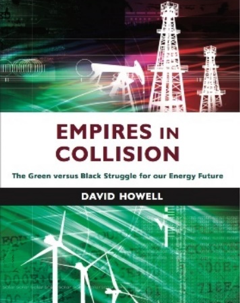Lord Howell
2016 was the year of events people failed to foresee. The first was that, in the middle of the year, the UK would vote to leave the European Union for good. The second was that Donald Trump would head for the White House. Both these events have had a Richter-scale impact on global energy, on supply prospects, on demand, on prices, on energy policy and prospects.
In London, the Prime Minister and the Chancellor were swept away, and with them the Whitehall Department of Energy and Climate Change – which many regarded as having been far more concerned with climate change objectives than with safeguarding energy supplies. In Washington, the President-elect, Donald Trump, chose as new head of the Environmental Protection Agency, Scott Pruitt, a long-standing and powerful critic of the climate change case (which he insisted was far from settled) and of measures to combat climate change. He went on to nominate Rex Tillerson, the retiring chief of Exxon and a champion of the oil and gas worlds, as Secretary of State and America’s face to the world.
As the Trump Administration gets under way these appointments and numerous Trump statements – to the effect that the Paris Climate Treaty of November 2015 should be scrapped – can leave no-one in any doubt that the ‘collision’ between fossil fuel interests and the demands of low carbon campaigners – the black versus green struggle – has been vastly intensified.
Whether that means a diminution of low-carbon policies or just smarter (i.e. more effective and less costly) climate policies remains to be seen. Bjorn Lomborg, president of the Copenhagen Consensus Center, argues with some force that the overall invigoration of all energy sources and power production which the President-elect has promised could well lead not to abandonment of high-cost and low-impact climate measures but rather to a switch to a more effective range of measures, costing less per tonne of carbon reduced, proving less burdensome on consumers and less threatening to reliable power supplies – a better-than-Paris and smarter performance.
Meanwhile the whole global energy scene has continued to demonstrate its own version of Moore’s law (that computer power would double every two years) with a stream of powerful new trends and innovations. Cargoes of American shale gas have begun to arrive in Europe. OPEC has continued to flounder in a sea of surplus oil inventories. Turkey has made it up with Russia, allowing Russian plans to pipe gas through Turkish grids to Southern Europe. Fracking methods have become far ever more efficient, and the US shale sector consequently much more resilient in face of low prices. New, cheaper and cleverer ideas have begun to circulate for capturing carbon in fossil fuel burning. Battery storage – the Holy Grail for intermittent wind and solar power – has made further leaps, as has battery technology in the automotive industry. The final go-ahead decision on EDF’s Hinkley Point nuclear plant in Somerset, UK, has been taken, after much wobbling, alongside an acceleration of interest and effort in the field of small buy genuine accutane modular reactors. Far from heralding a renaissance of UK civil nuclear investment Hinkley may yet prove a colossal and super-expensive barrier to future nuclear projects. As for new discoveries, well the Texans have found another oil field of Saudi proportions to meet US demand for years to come.

At the demand end of the energy chain, a cascade of new methods and devices for increasing energy consumption efficiency has continued, many reaching commercial level and becoming fully available to the consumer. And the peculiarly British muddle over energy supply policy has continued as before, with efforts to meet peak winter demand resulting in wafer-thin electricity supply safety margins and in millions of pounds being paid to coal burning generating stations to stay open and ready, despite plans to shut them by 2026. Diesel operators have also been called in – all at soaring cost to consumers – a true Alice-in-Wonderful example of upside-down thinking, equalled only in Germany where vast subsidy expenditure in line with the much vaunted Energiewende programme has resulted in more dirty coal being burnt, not less, and in higher, not lower CO2 emissions. Far cheaper ways towards clean energy might well have been achieved by carrying on with coal-burning but with much more boiler efficiency and commercial forms of carbon capture. But in the zeal to ban all coal that more practical aim was forgotten.

Yet amidst the confusion and distorted debate the message through this period of continuing hectic change and political upheaval remains essentially the same. If the great energy transition is to succeed, if carbon emission levels are to be anywhere near curbed to safe levels, if billions of people in developing economies are to have the chance of cheap power, if in the more developed world reliable power supplies are to be secured, the key will be not war between the green campaigners and the world’s energy industries, but clever and highly constructive cooperation, planned sensitively, and combined with sensible adaptation to the climate extremes which probably lie ahead anyway, whatever carbon targets nations have signed up to on paper.
Whether the zealots of green energy, who put carbon reduction before anything else, regardless of cost, have the understanding to grasp the need for cooperation with the fossil fuel world, remains to be seen. Whether on the other side the hard-line climate sceptics now taking power in Washington see the middle and cooperative way with green technologies also remains uncertain. Let’s hope for the sake of the world that compromise and realism, rather than battles and ideology lie ahead.








